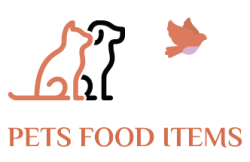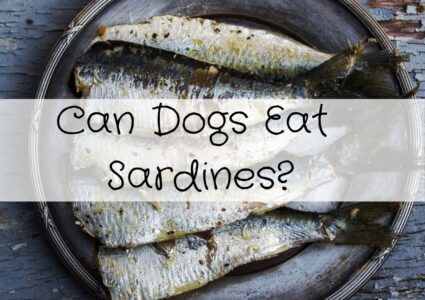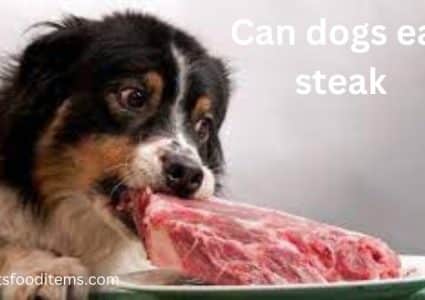Meat is usually beneficial to dogs. They are, of course, carnivores. Meat is a great source of protein and contains a variety of vitamins and nutrients that are beneficial to dogs. Unfortunately, due to its high-fat content, sausage is not a healthy choice for your pet. While giving your dog a slice of sausage on occasion is fine, you should never overdo it. Let’s get right to the point: sausage, despite being a meat product, is not a nutritious treat for dogs.
Dogs can eat sausages, but not frequently, and they should not be used as their primary source of protein. A few tiny sausage bits, on the other hand, should suffice as a special treat. Even humans should be cautious about eating sausages regularly because processed meat is frequently high in fat, saturated fat, salt, and other nutrients that we should limit in our diets. They are not nutritious food and are certainly not beneficial to humans or dogs, no matter how appealing they are.
Is sausage safe for dogs to eat?
Sausages have a low nutritional value as well. Although they are meaty, they are low in protein. Many brands contain less than 50% pork. Not to mention that the components and nutritional value of sausages vary significantly depending on the brand, the type of meat used, and the flavorings added. It is therefore critical to read the label in case there are any dog-hazardous components. If you want to give your dog a protein-rich treat, consider chopping up some lean meats like chicken, turkey, or fish.
Although a small piece of cooked sausage will not harm your dog, it should not be eaten as a snack. Sausage contains a lot of salt and fat, which can cause major digestive issues in your pet. It could also cause dehydration. As a result, resist the urge to spoil your pet with your love of breakfast food. Fortunately, you care even more about your dog’s health.
Why should dogs avoid sausage?
Although it may seem appealing, giving your dog a piece or two of sausage is not a good idea. Don’t give in, even if your dog has those huge, sorrowful, begging eyes. Your dog should avoid sausage primarily due to its extremely high-fat content. In reality, sausages can contain up to 50% fat. This can lead to not only obesity but also diabetes, heart disease, and pancreatitis later in life. Furthermore, sausage is frequently high in salt, which is toxic to dogs. Other ingredients that sausage may contain include garlic and onions, both of which are extremely harmful to dogs because they can destroy red blood cells.
Why does sausage harmful for dogs?
Although sausages are not harmful to dogs because they are made of pork, they are frequently high in fat and sodium. As a result, they are unsuitable for a dog’s diet. Excessive consumption of high-fat foods can result in canine obesity, which can lead to a variety of medical conditions and issues for your dog. Furthermore, pancreatitis in dogs is more likely to occur when they eat a high-fat diet. When it comes to sodium consumption, this can lead to issues such as high blood pressure and heart disease. If your dog consumes an excessive amount of sodium-rich foods, he or she may develop salt poisoning.
Are dogs able to consume sausage meat?
In reality, there isn’t much of a difference between sausages and sausage meat; the same laws apply. Although sausage meat contains a higher percentage of pork, it is still high in fat, salt, and flavorings that are harmful to your dog if consumed regularly. Salmonella and E. coli are two bacteria that can make your dog very sick if found in raw sausage meat.
Can dogs eat hot sausage?
Dogs should not eat sausage rolls for the same reason they should not eat sausages. The pastry simply adds calories to the meat’s already excessively processed fat and salt content. However, because it is non-toxic, rewarding your dog with a small piece of it is generally safe. Giving your dog their sausage roll or frequent scraps is a bad idea.
Can dogs eat sausage with flavorings?
You should not give your dog any kind of sausage as a reward, whether it is garlic, liver, salami, chorizo, or even a flavor-infused pig sausage. To begin with, because of their high fat and salt content, flavored sausages pose the same health risks as plain breakfast sausages. However, the possibility of flavored sausages containing dog-poisoning ingredients such as nutmeg, garlic, or onions exists. Because dogs are also fairly sensitive to herbs and spices, a strongly flavored sausage is more likely to upset their stomach.
Sausage, while unhealthy, is not harmful. And as long as your dog only consumes a small amount of it on occasion, it should not harm them. As a result, your dog could certainly have a small amount of sausage as a very special treat. However, don’t use sausage bits as your go-to training reward because they’ll end up eating a lot of them. Only consume sausage when you truly deserve a high-value reward.
Conclusion:
Dogs can eat sausage precisely, but that doesn’t mean they should. It may smell and taste delicious to your pet, but it is quite fatty and salty. Dogs should not be fed sausage on a regular or excessive basis because it will make them sick and increase their risk of diseases such as pancreatitis, obesity, and even cancer. However, because sausage isn’t poisonous, your dog shouldn’t suffer any long-term consequences from grabbing a dropped piece or nibbling on it occasionally. Feed Pure to your dog instead of a fatty sausage for a nutritional, all-natural, and delicious alternative that is high in protein. It’s full of wholesome goodness, balanced, complete, and delectably delicious.








